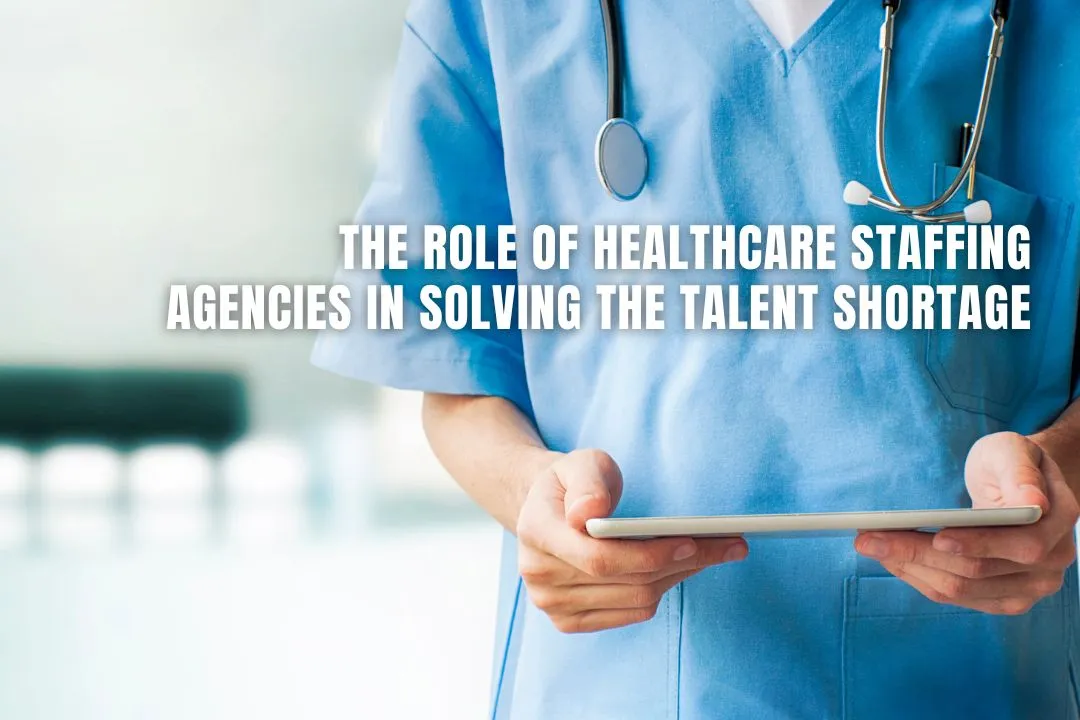
Editorial Disclaimer
This content is published for general information and editorial purposes only. It does not constitute financial, investment, or legal advice, nor should it be relied upon as such. Any mention of companies, platforms, or services does not imply endorsement or recommendation. We are not affiliated with, nor do we accept responsibility for, any third-party entities referenced. Financial markets and company circumstances can change rapidly. Readers should perform their own independent research and seek professional advice before making any financial or investment decisions.
The healthcare industry faces unprecedented staffing challenges impacting patient care quality and operational efficiency. With clinician burnout reaching alarming levels and patient demand steadily increasing, medical facilities require innovative workforce solutions.
A healthcare staffing agency brings specialised expertise to this complex challenge, offering strategic approaches beyond traditional recruitment methods. Continue reading to understand how these specialised partners are transforming workforce management for hospitals and clinics nationwide.
Healthcare staffing specialists offer distinct advantages that internal HR departments often cannot match. Their focused industry knowledge allows them to identify qualified candidates more efficiently while maintaining rigorous quality standards.
These agencies maintain extensive talent networks built specifically for healthcare environments. Such specialisation means they understand the unique qualifications, certifications, and experience required for different medical roles. So when you partner with a reputable staffing firm, you gain access to pre-vetted professionals who can integrate quickly into your facility's operations.
Beyond simple placement, staffing partners provide valuable insights about market trends, competitive compensation packages, and emerging talent pools. Their consultative approach helps healthcare facilities develop more effective long-term workforce strategies.
Staffing shortages create immediate challenges that require prompt solutions. Temporary staffing solutions offer several key benefits, including:
The best agencies maintain rigorous screening protocols that include thorough background checks, credential verification, and skills assessment. With this quality control system, even temporary staff meet the same high standards as permanent employees.
When evaluating potential staffing partners, you should request detailed information about their vetting procedures and compliance protocols.

Beyond addressing immediate needs, leading staffing agencies also help facilities develop sustainable talent pipelines. These long-term strategies include:
These approaches help transform staffing from a reactive process to a strategic function aligned with broader organisational goals. The most effective staffing partnerships evolve over time, with agencies gaining a deeper understanding of facility culture, workflows, and specific needs.
Modern healthcare staffing firms leverage advanced technologies to improve matching efficiency and candidate quality.
For instance, sophisticated applicant tracking systems identify the most qualified candidates from thousands of possibilities. AI-powered screening tools, on the other hand, help eliminate unconscious bias while identifying the most promising applicants based on objective criteria.
These technological advantages significantly reduce time-to-fill metrics while maintaining quality standards. For facilities struggling with lengthy vacancies, this efficiency can translate directly to improved patient care and reduced burden on existing staff.
The healthcare staffing crisis demands multifaceted solutions that address both immediate needs and long-term challenges. Partnering with specialised staffing experts ensures that medical facilities can implement more effective workforce strategies that improve operational efficiency and care quality.
The most successful facilities recognise that staffing partners bring valuable expertise that complements internal resources while providing flexibility to adapt to changing healthcare demands. With the industry continuously navigating workforce challenges, these strategic partnerships will remain essential to effective healthcare delivery.